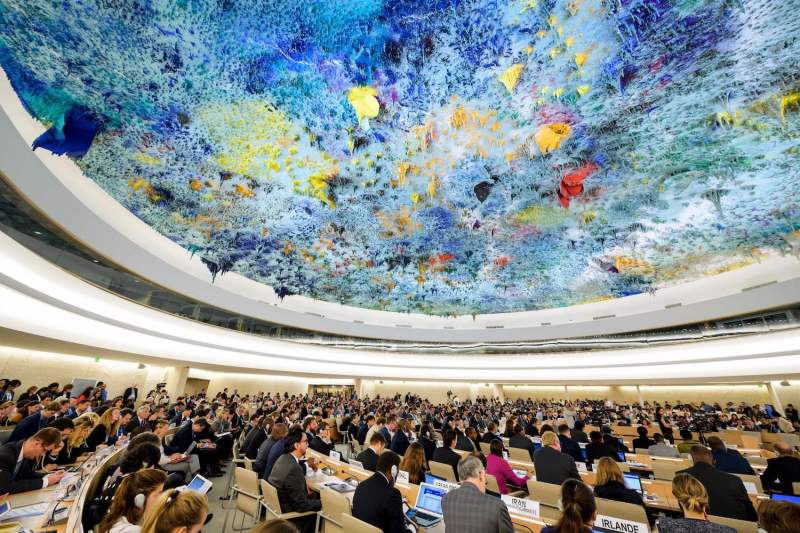An overview of Bahraini government reprisals preventing Human Rights Defenders from participating in the UN Human Rights Council Sessions
ADHRB has reported that Human Rights Defenders (HRD) travelling from Bahrain to engage with the United Nations (UN) Human Rights Council (HRC) have been missing from the latest and previous Council Sessions. Recent developments caused by the outbreak of COVID-19 prevented many HRDs from traveling to Geneva and attending the 43rd Session of the HRC. However, the effect COVID-19 on travel restrictions does not entirely explain the HRDs that were missing well before the outbreak. Since 2016, Bahrain began to systematically impose travel bans as a means of conducting reprisals against anyone seeking to engage with UN human rights mechanisms. Between June and September 2016, the Government of Bahrain subjected nearly 30 activists to travel bans. ADHRB has documented persistent patterns of reprisals against HRDs who attempt to engage with the UN, which accounts for their absences from HRC sessions.
In November 2019, eight UN Special Procedures’ Offices issued a joint communication to the Government of Bahrain concerning continued acts of intimidation and reprisal against Nabeel Rajab and Sayed Ahmed Al-Wadaei, the son-in-law of Ms. Hajar Mansoor, for their cooperation with the United Nations in the field of human rights. They reiterated their concerns at the targeting of human rights defenders and political activists for peacefully carrying out their human rights activities, as well as for legitimately exercising their rights to freedom of expression, freedom of association and freedom of peaceful assembly. In January of the same year, six Special Procedures’ Offices issued a joint communication to the Government of Bahrain concerning threats, that include death and rape threats, travel restrictions and other human rights violations against Ms. Zainab Abdullah Salman Al Khamis. and Ms. Ebtesam Abdulhusain Ali-AlSaegh. Ali-AlSaegh’s family was already targeted during the 34th session of the HRC due to her engagement with the body and other UN human rights mechanisms; she and her family were targeted due to Bahraini regime’s continued persistence in their crusade af reprisals against members of civil society. As a matter of fact, the Bahraini authority has not allowed a single UN Special Procedures official to visit the country for more than a decade, and has failed to indicate any willingness to engage in future cooperation with any UN human rights enforcement mechanism.
In June 2017, ADHRB issued a report called Crushing Civil Society: Bahraini Government Reprisals for International Engagement about methods used by Bahrain to prevent and to threaten activists who engage with the international community; practices that are still taking place now prior to each new HRC.. In September 2017, the UN Assistant Secretary-General for Human Rights, Andrew Gilmour, presented a report on reprisals at the 36th session of the HRC raising serious concern over the increased attacks on human rights defenders in Bahrain. The same report finds that Bahrain has been involved in systematic ongoing harassment and intimidation of Human Rights Defenders; including the enforcement of travel bans, the targeting of their families, arbitrary arrest and imprisonment. One case involved the sexual abuse and torture of an HRD as a means of reprisal. In his report, Gilmour maintained that the Bahraini government was employing a pattern of retaliation against individuals working with the UN, noting that the “sweeping imposition” of travel bans affected at least 20 Bahraini HRDs, highlighting the cases of human right defenders Sayed Ahmed AlWadaei, Ebtesam al-Saegh, Nabeel Rajab, and Nedal al-Salman. This pattern of state behavior persisted through 2018 and 2019, in spite of international and UN condemnation.
On August 13, 2018, UN Secretary-General Antonio Guterres published the ninth annual report as the Secretary-General of the UN, in which he details the levels of retaliation against human rights defenders on a country-by-country basis. This entailed allegations of extra-judicial killings, torture, arbitrary arrests, and public stigmatization campaigns, which aim to target the victims of these very human rights abuses. The report stated that ten special procedure mandate holders expressed grave concern about an ongoing trend of harassment and intimidation against Bahraini civil society representatives seeking to cooperate with the United Nations. Government eprisals have taken the form of extensive travel bans for at least 20individuals, and the arrest, detention, sexual assault and torture of other targeted individuals.
Bahraini Members of civil society or HRDs would likely be subject to reprisals when participating or attempting to participate in the HRC sessions. Guterres maintained that this behavior is absolutely reprehensible, especially coming from a member of the HRC. The international community is responsible for preventing any HRC state party from the use of reprisals against civil society actors who want to engage with the HRC and its mechanisms. States must urge Bahraini authorities to lift all travel bans and cease all forms of interference with the country’s independent civil society actors. The international community must ensure that Bahrain, as a Human Rights Council member, adheres to international human rights standards. In particular in allowing human rights defenders to attend the HRC, in order to enhance the functioning of the HRC.





